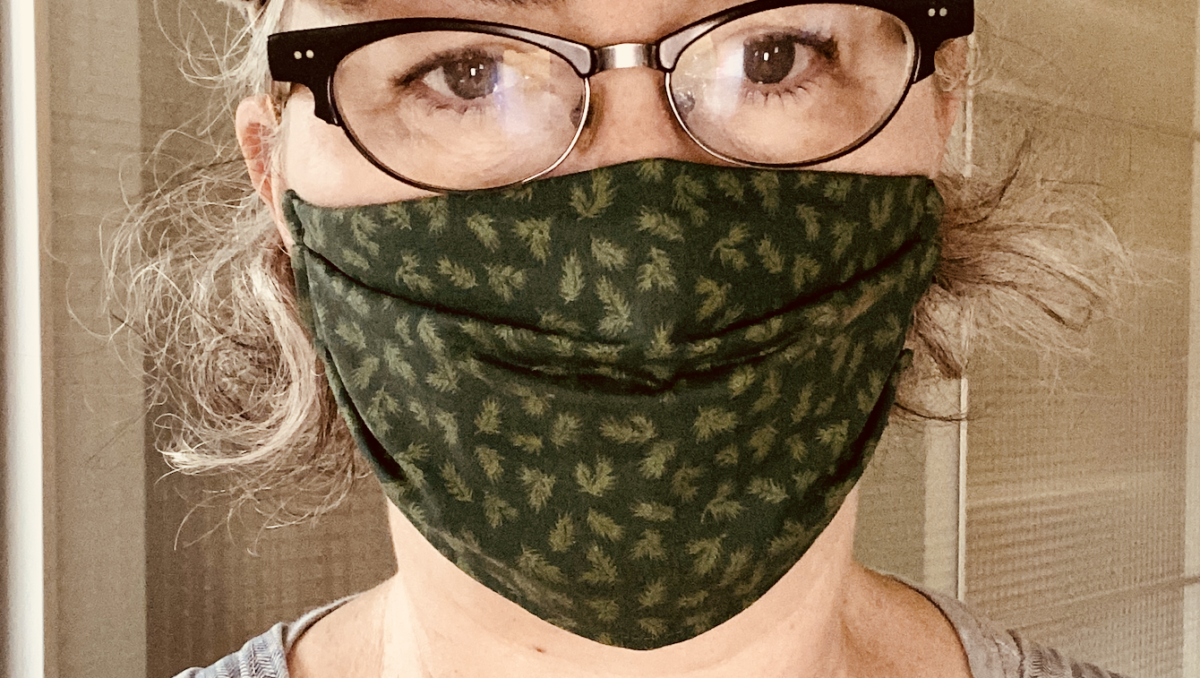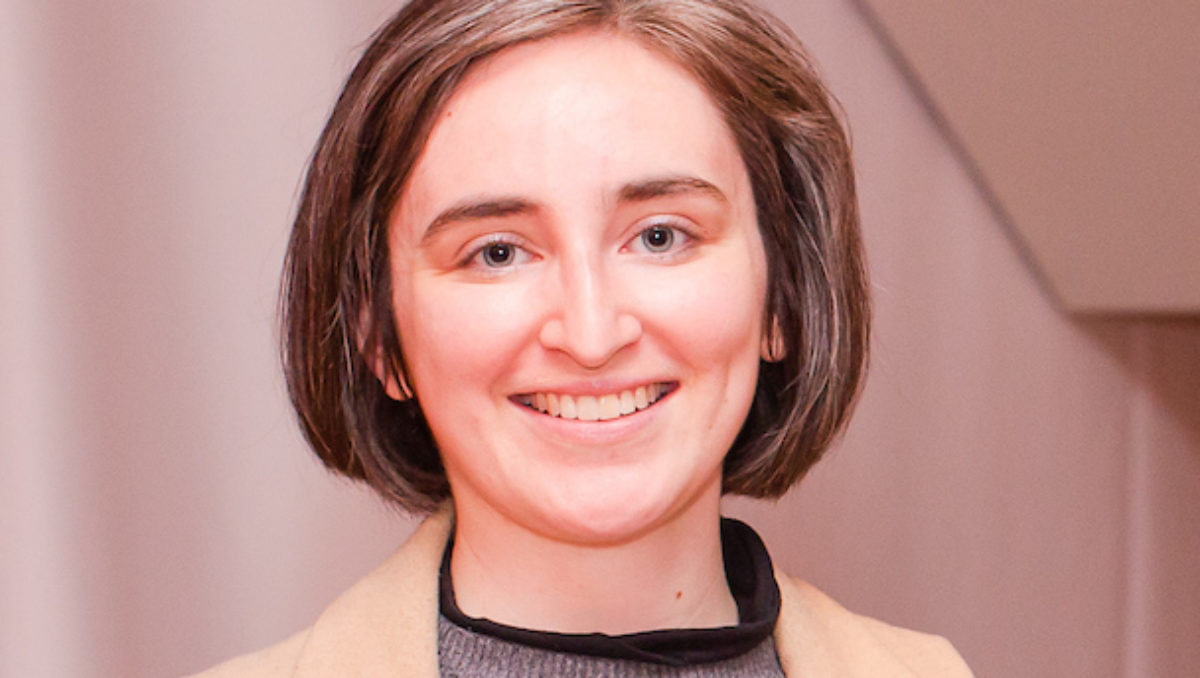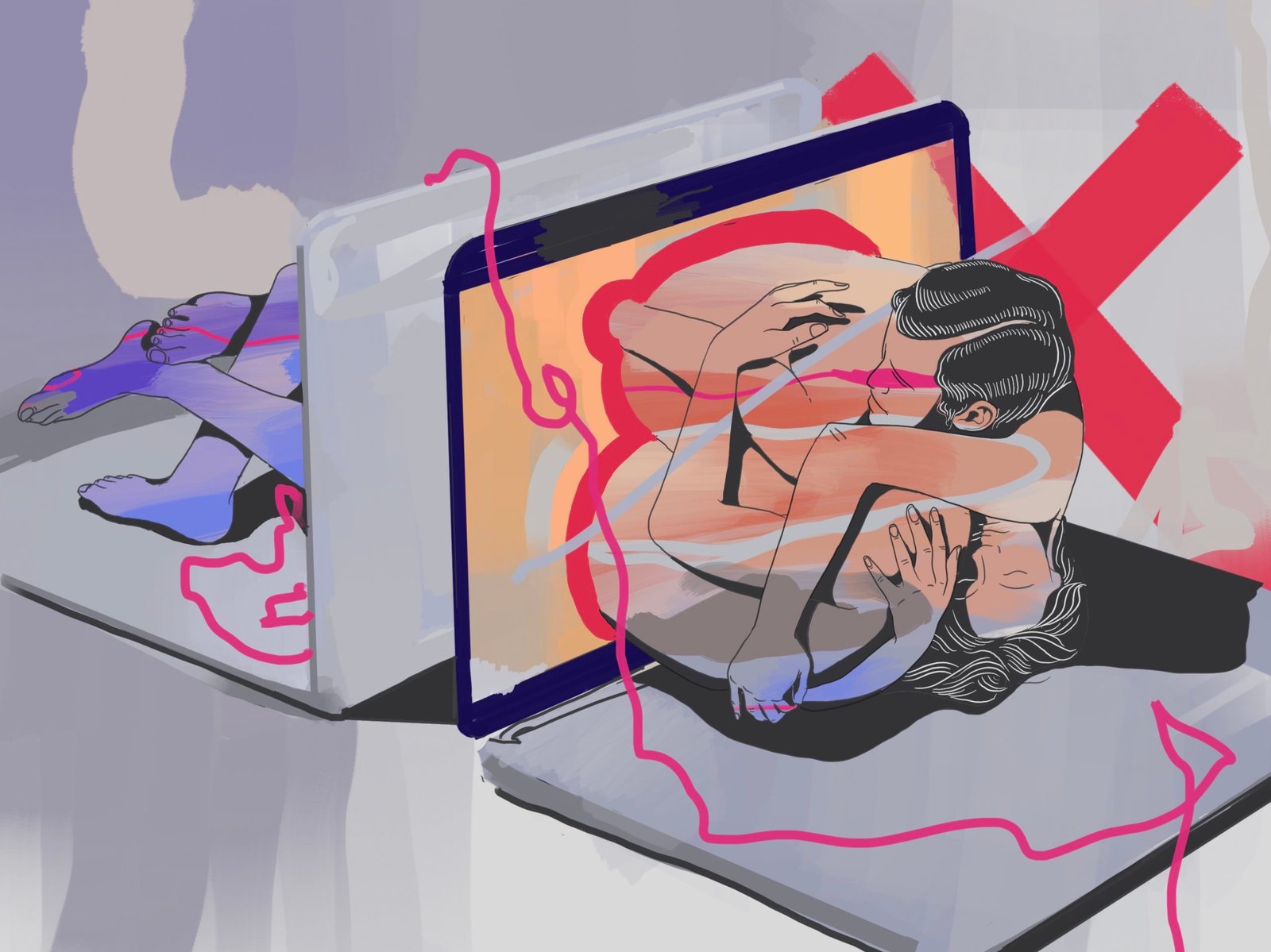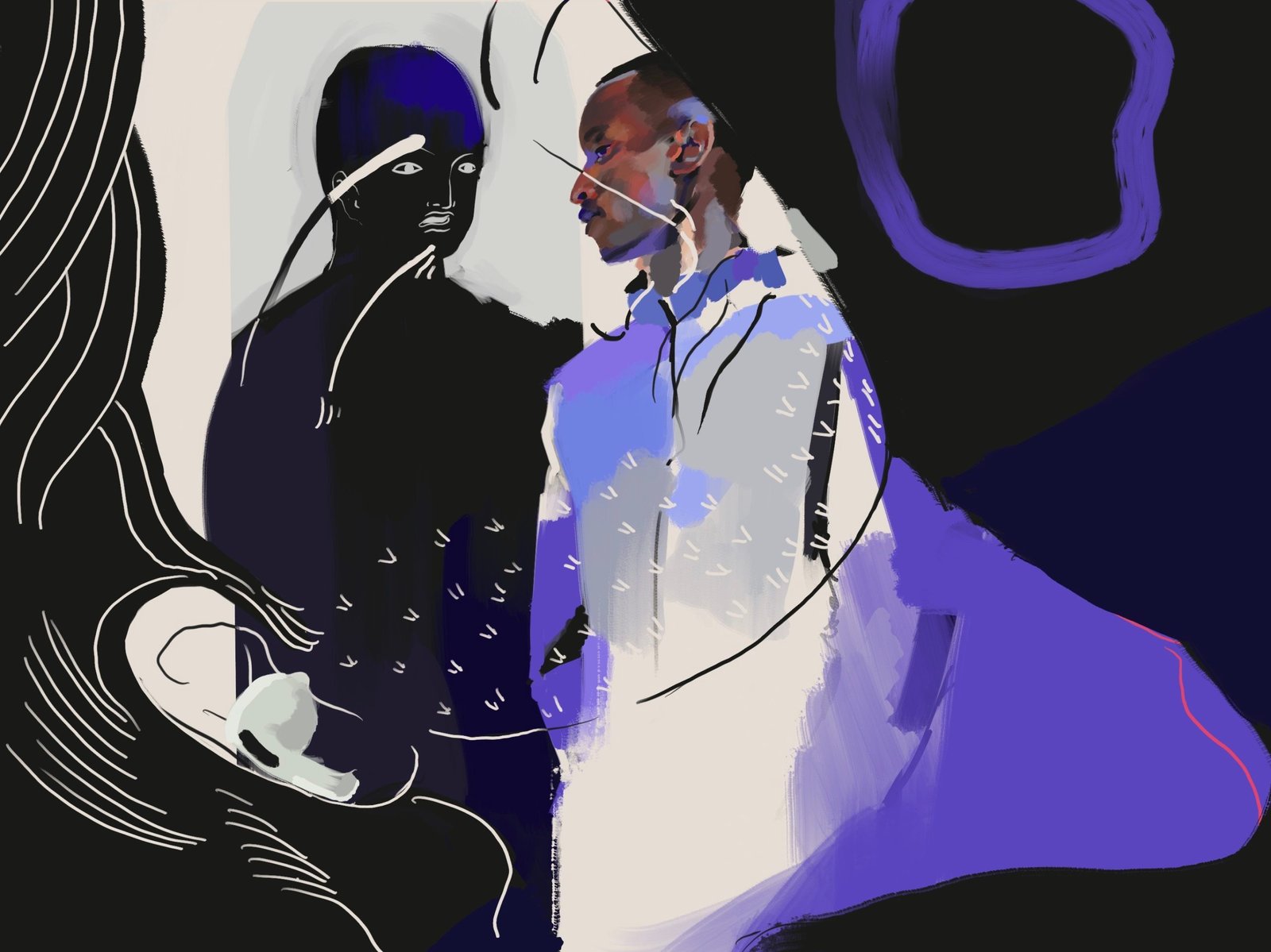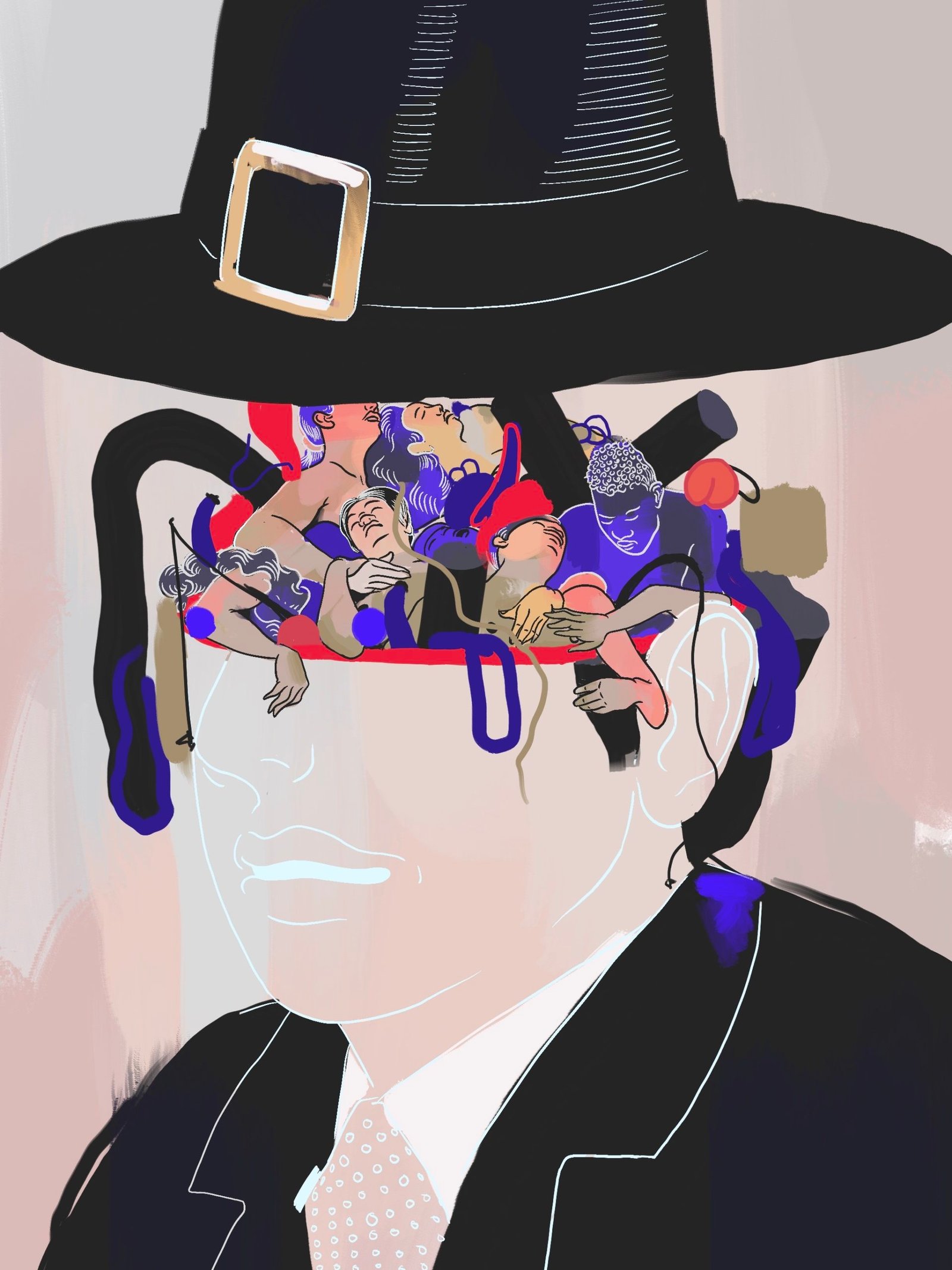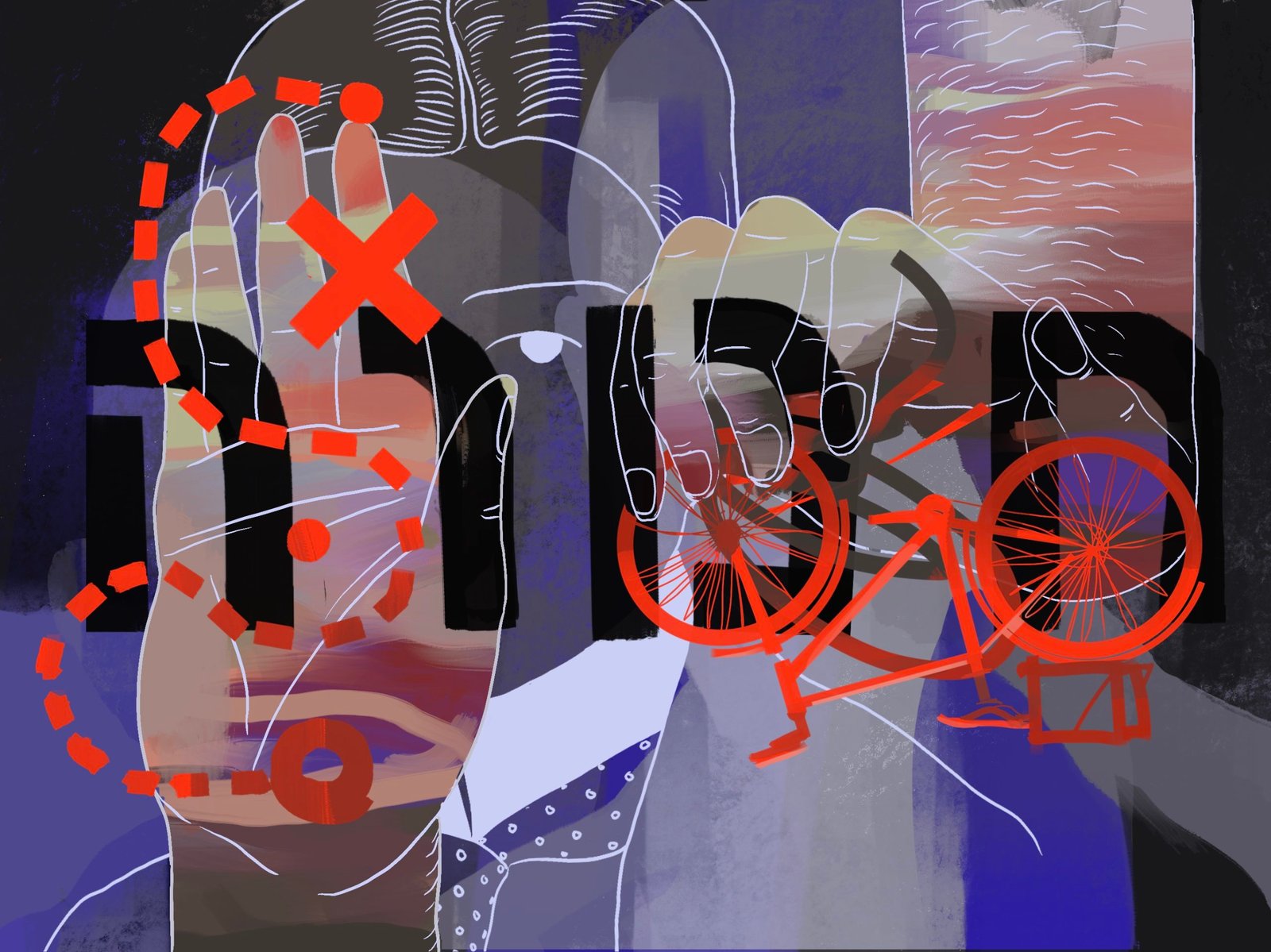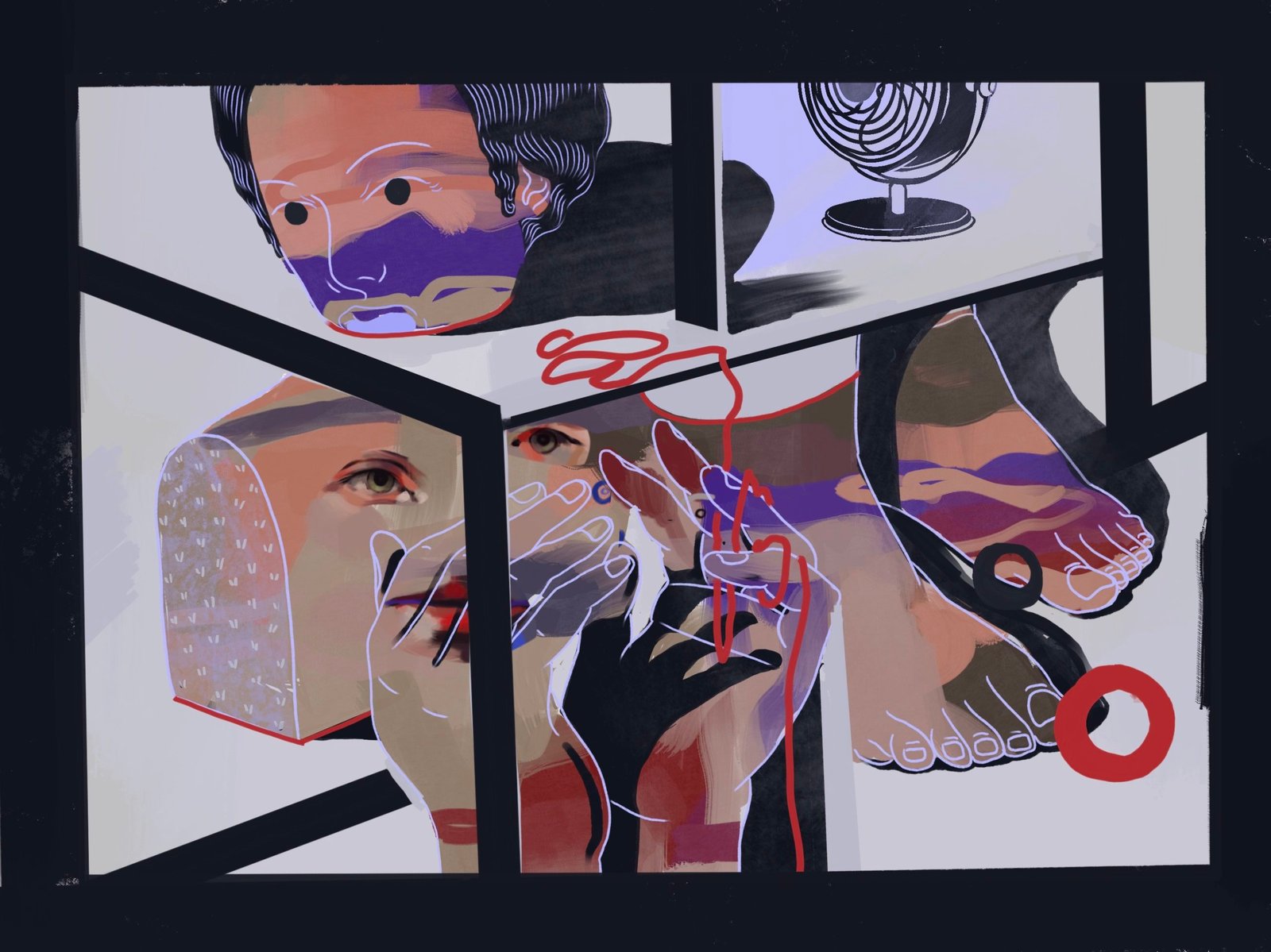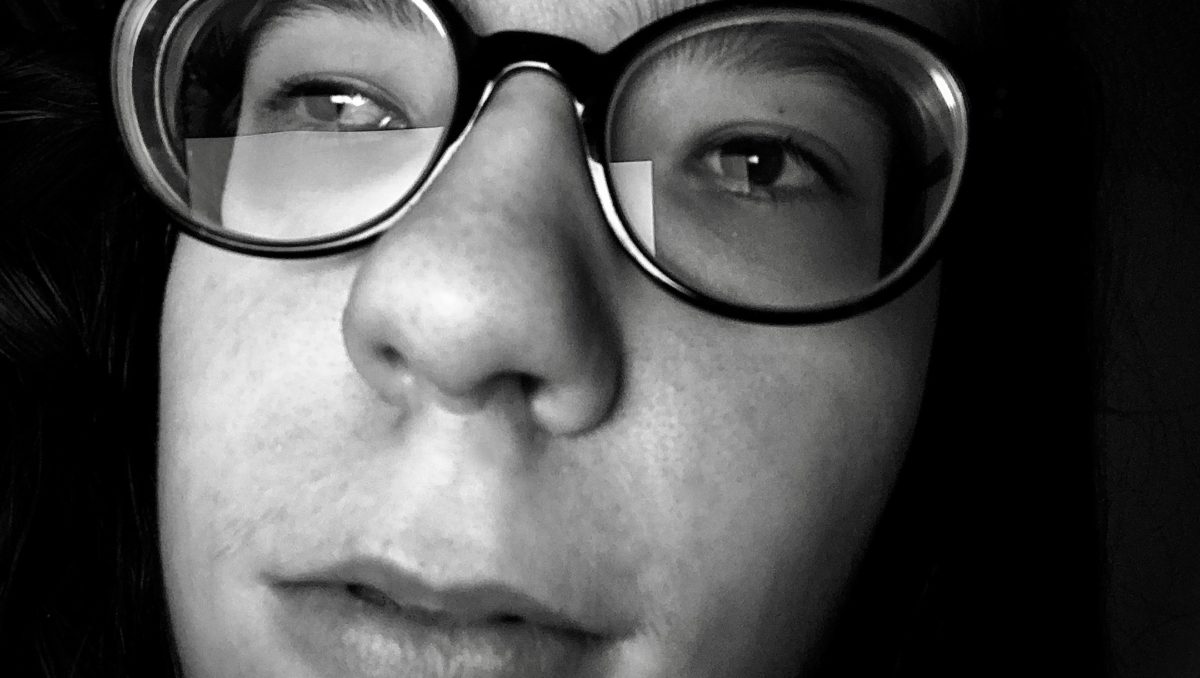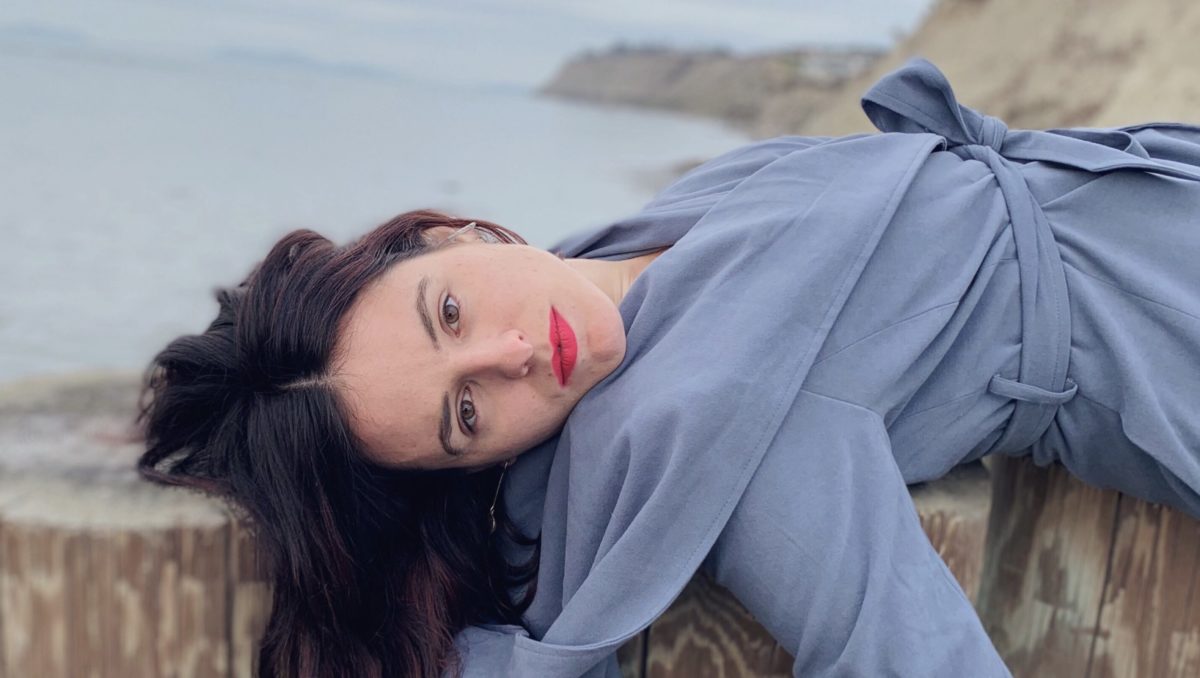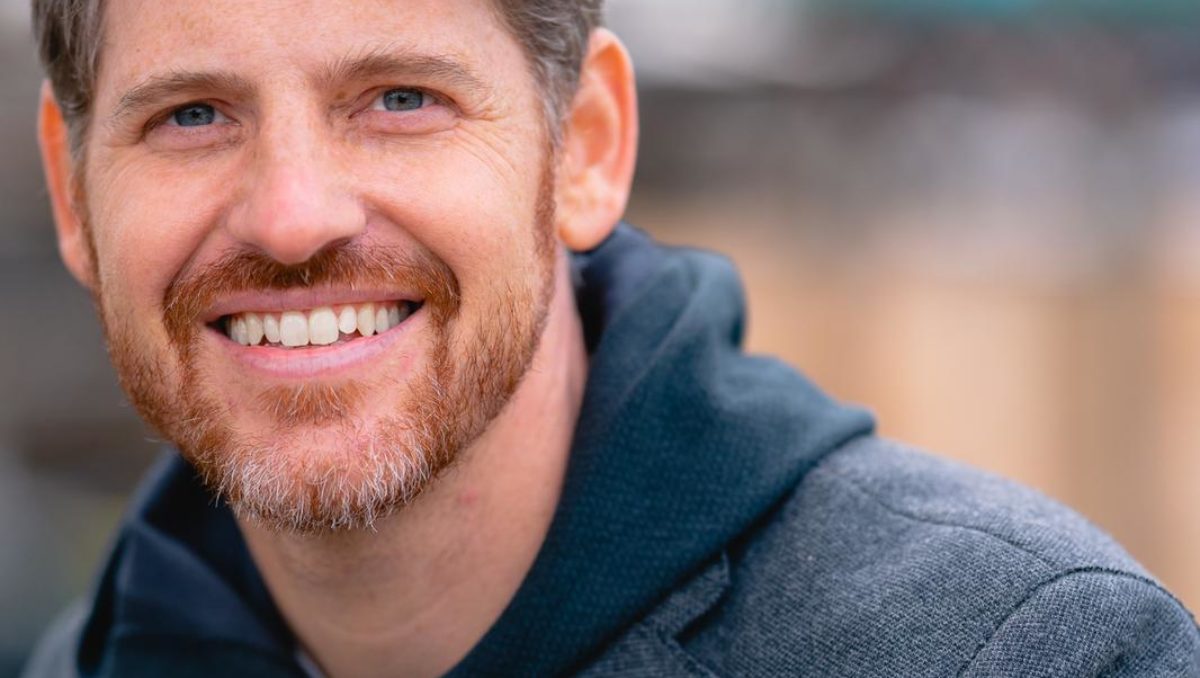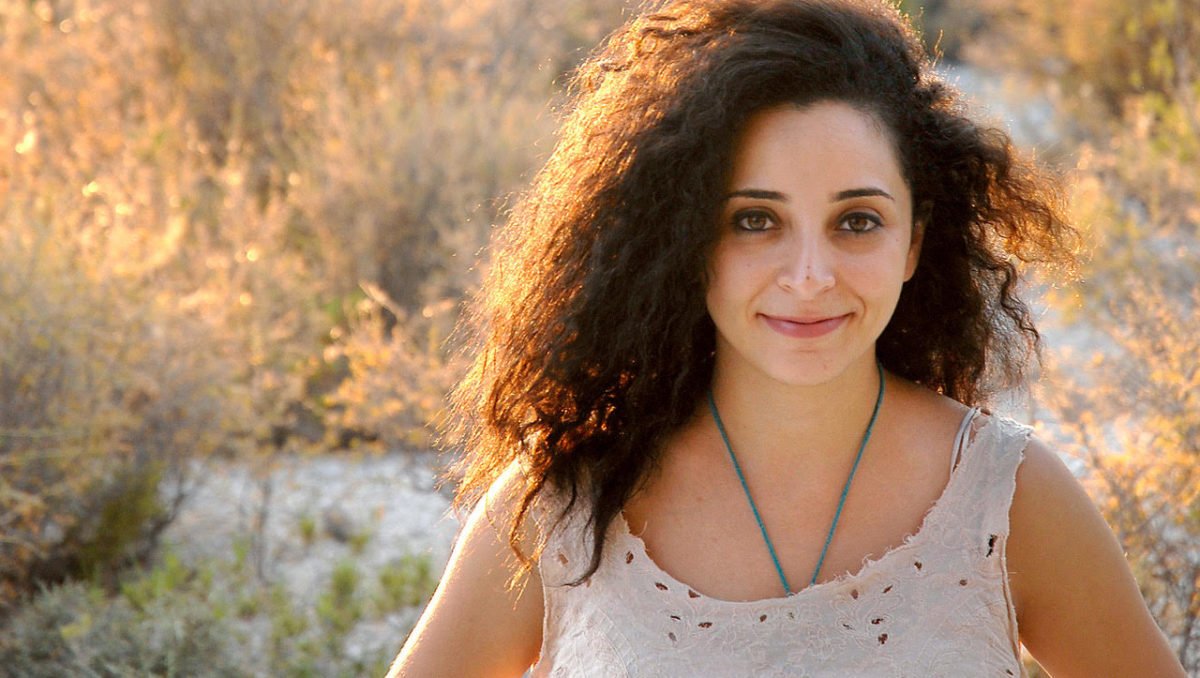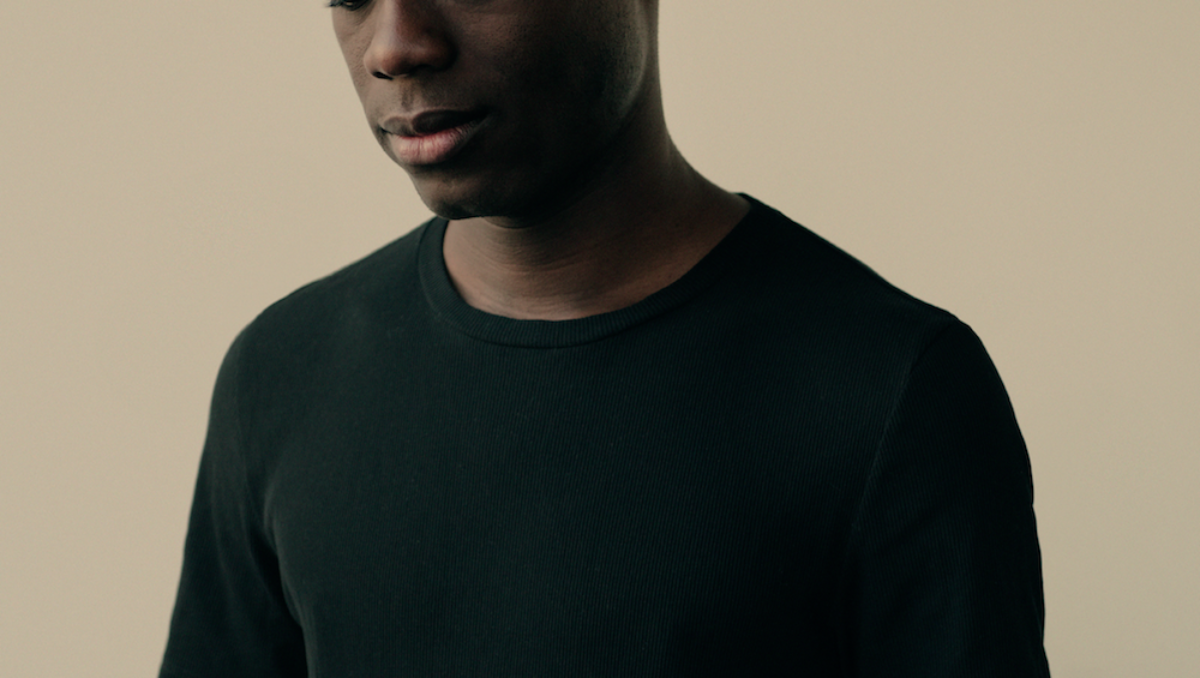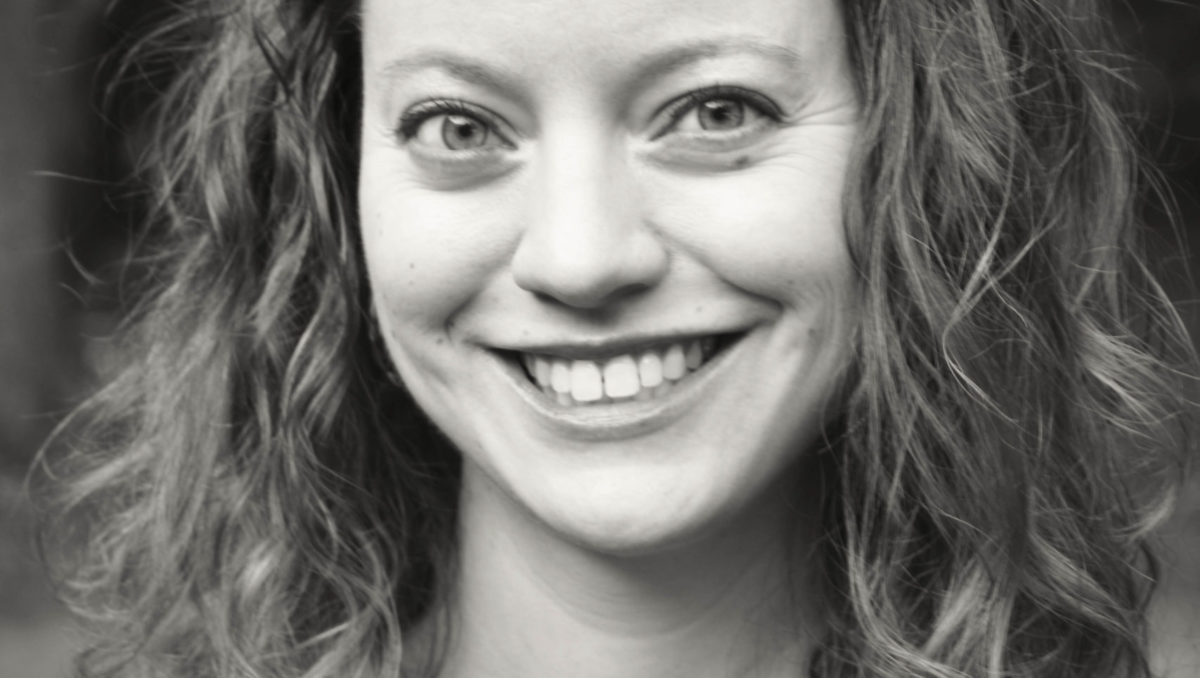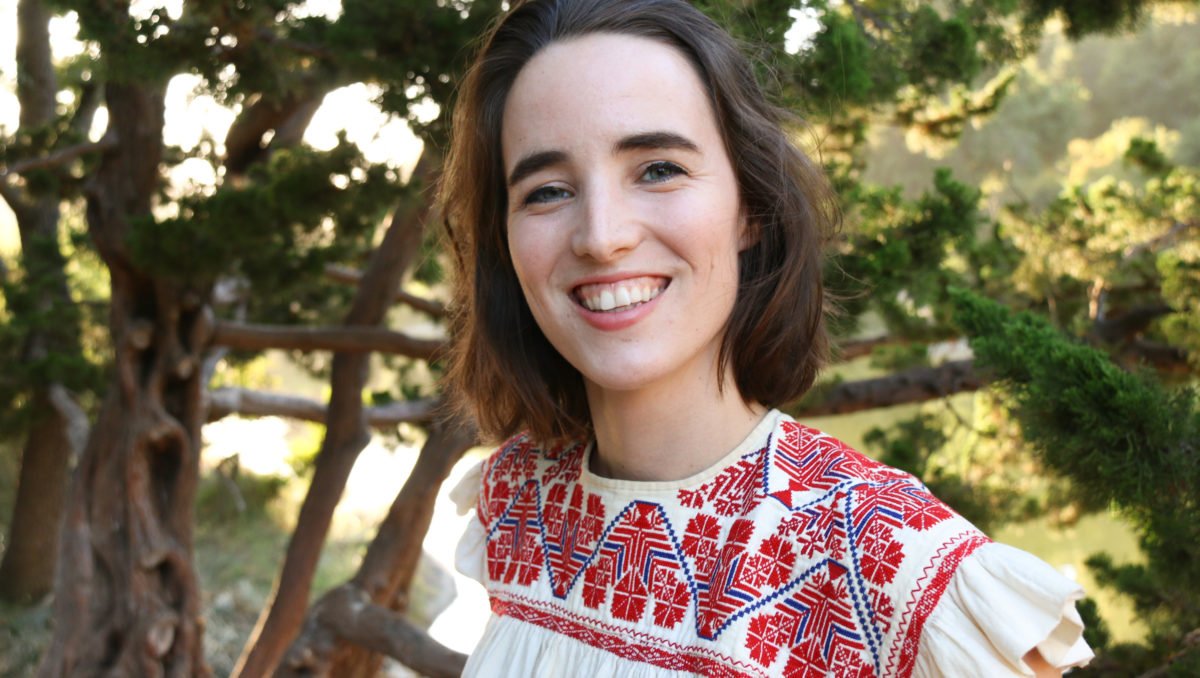TWO POEMS by Yuki Jackson
BLACK GRANDDAUGHTER CALLS JAPANESE GRANDMOTHER
I hold the phone
and my hand shakes.
I ask her why is it I’m not invited.
She has no answer.
I’m too black to be shown.
I knew before I asked her.
I knew she didn’t want to show me to her neighbors.
Now hear the dial tone.
My mother danced to soul
under the light of a disco ball
and never returned to
kneel on a bamboo floor.
THE HOTTENTOT VENUS CAKE IN SWEDEN
The room is full of white people in a cold place.
A government sponsored event.
They smile and use a knife to cut her open,
a life-size thick black female body
with an African bug a boo face.
They plate pieces of her,
lick her black icing skin,
fork to their lips, saying mmm, delicious.
Her inner flesh is red, perhaps red velvet,
classic American southern favorite.
A black male Sambo artist
created the installation.
With each hack,
the artist would cry for effect.
One white man’s hands shake
as he cut his piece away,
ashamed.
Why did he do it?
The prime minister cuts the clitoris of Hottentot Venus.
A white woman whispers in the black man’s ear,
your life will be better after this.
- Published in Issue 18
ON INTERSTATE 89 NORTH by Kerrin McCadden
I don’t know how close I was.
I was not paying attention to him
or his raised middle finger, which
he was tired of holding up,
his face lowered out the window at me,
glass down, even though the air
was freezing in upstate Vermont.
I have sped past, unthinking, it’s true.
I have sped past so many things.
How many miles until I know what I have done
is always the question. For a minute,
I thought I should be afraid
and watched him in my mirror in case
he sped to catch me. I have sped past and have been
unthinking so many times I want
the world to know. Once, a man leaned out
a passenger window and fired his gun at the sky
as I sped past. One time, a deer jumped
across my hood, which was accelerating,
while my son and I belted out,
Why do you build me up (build me up)
Buttercup, baby
just to let me down.
And nothing was the same afterward.
He grew, next, into someone
I’m desperate to track, to keep from harm,
to follow into the underbrush, wearing
orange vests or branches, depending.
The man crouched down in his fast, small car.
He stayed in line and left the highway
without closing his window.
Which was when I knew I was still alone.
A sign: one semi-truck cab hauling identical cabs
—one climbing up on the next, identical.
I know I was not wrong.
The way one carried the next, as if knowing
there was no other way to go.
And each was precisely like the other
so I craned my neck as I sped past them, too,
in case they, too, were astonishing.
- Published in Issue 18
ARTWORK by Lynnette Therese Sauer
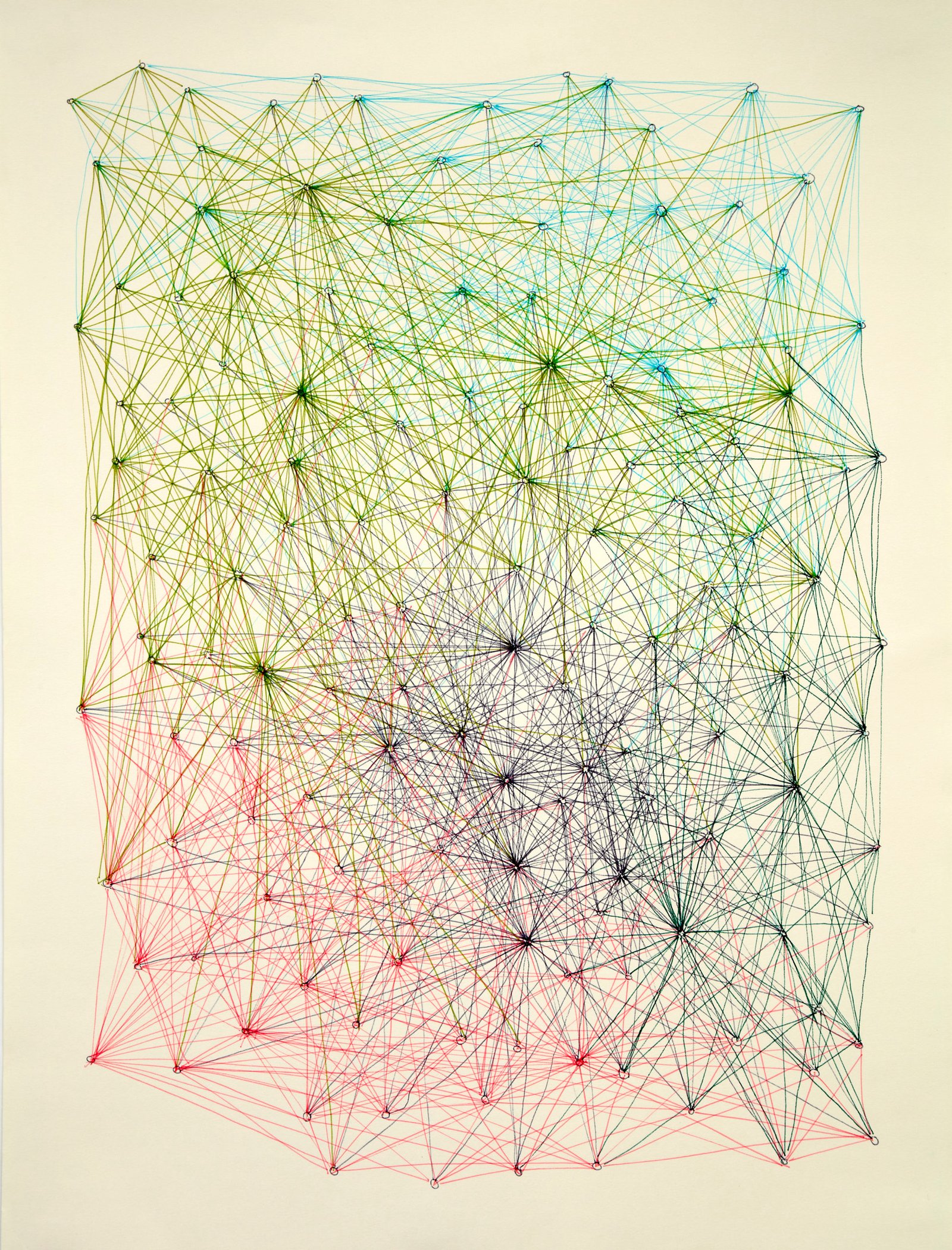
Everything Connects, ink on paper, 18×24″, 2018
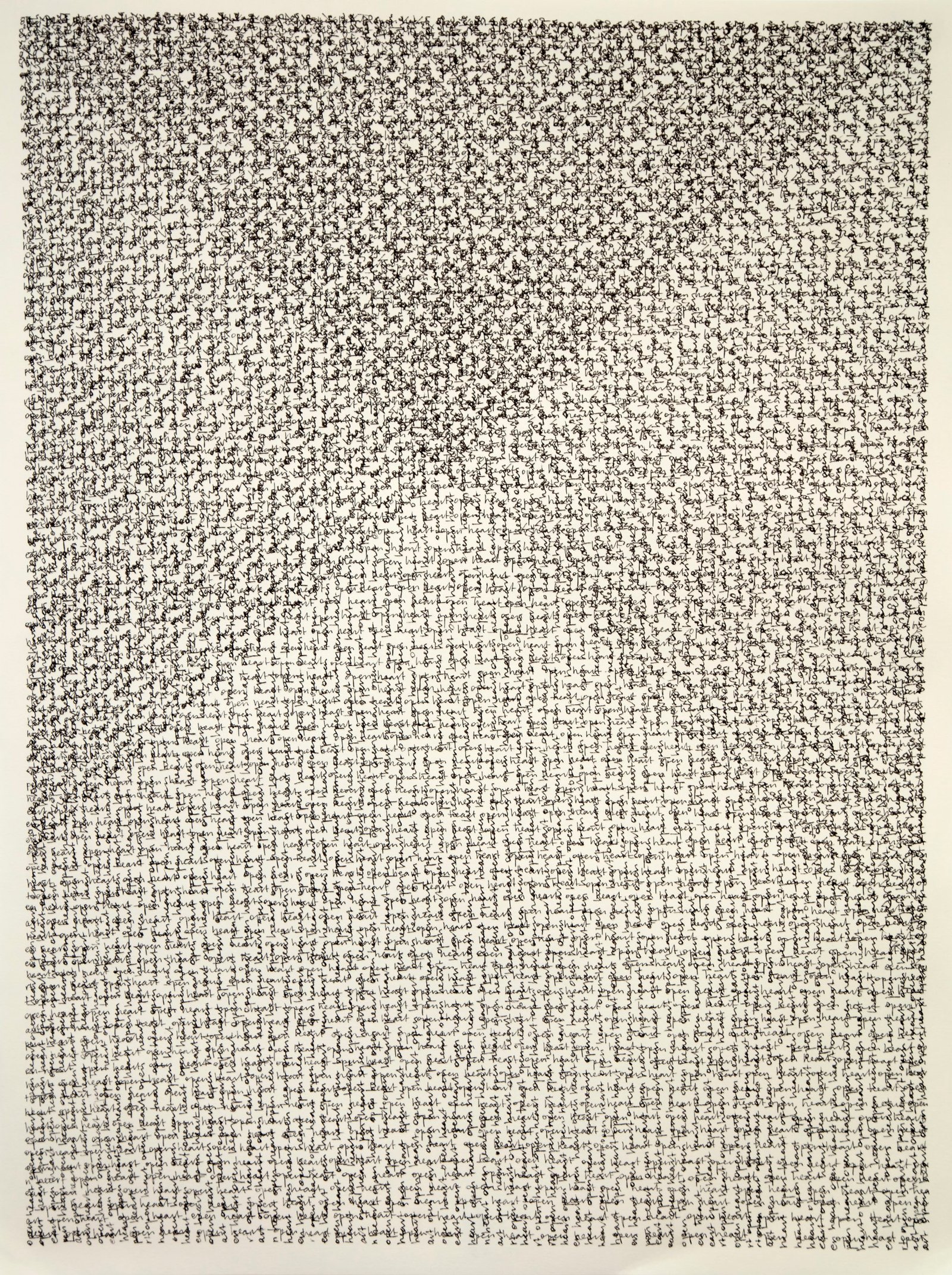
Meditation XXIII (open heart), ink on paper, 18×24″, 2020
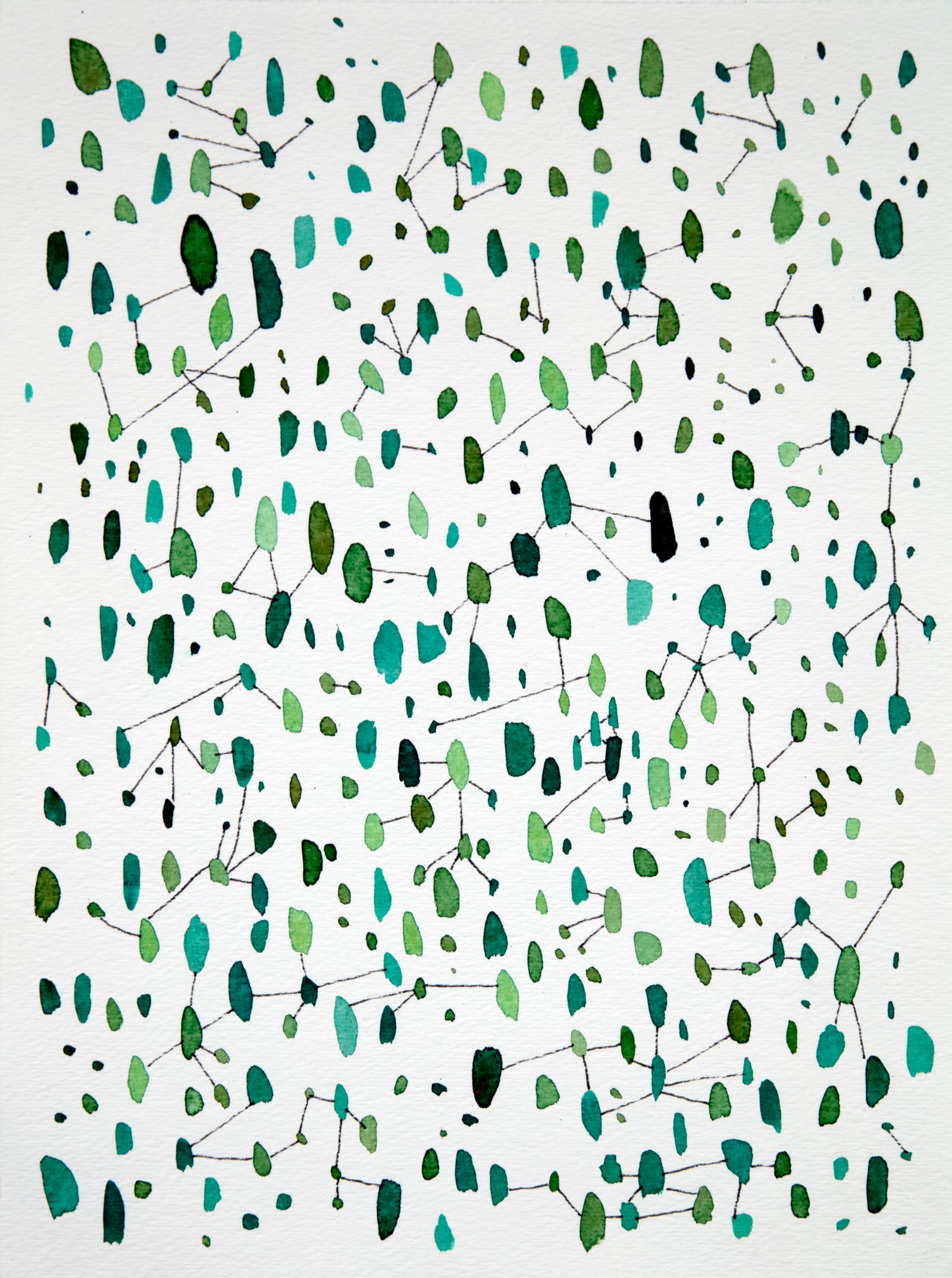
Everything Connects, watercolor on paper, 9×12″, 2018
- Published in Issue 18
JONAH WAS A PROPHET by Ottavia Paluch
but I’m just this tiny little thing
that was too quiet to become a prophet myself.
In the ocean, I’m not bothersome. Above it,
I exist and pretend not to. You forget who
you are after being swallowed. It’s weird, thinking
like this. You say things like home to a whale who
has already found one. In the digestive system, all you can do
is swallow and pray. You want to be cast out, like a fish.
Look at this world, trying to get above the trees.
I know nothing but the fact that we are fish, not saplings,
or that I will never reach the top of the mountain. Still,
I keep trying. Otherwise: no point. That’s not
the first disappointment I’ve had, which is to say that I
was the first, the one who stole the whale’s heart
because mine wasn’t pure enough. Did I choke on Eve’s apple?
If I yank on God’s vocal cords, will he sing me a hymn?
I don’t know. I’m not Jonah. Just a wannabe tidal wave,
a stranger. Scratched in God’s throat.
- Published in Issue 18
TWO POEMS by Patrycja Humienik
let the wind take care of it
crack the door, a window, let the air crack
open the books stacked & strewn, too many
to read in the clutter of one life,
let blast into the burnt expanse of forest
in my mind: each day the mirror
invites me beyond the need
to be liked, into noticing:
slopes of collarbone, bowl of pelvis,
what i am being moved toward: an image
of myself, running out the car and toward
the singed trees, smell of gasoline
faint but clinging—
pluck a softness
i am belly up beneath the dogwood plucking petals
when night comes out sprawls out beside me
they say, if you want a name
i have a fissure
night knows i long for a new name
night’s pronouns are they/them
i nod we toss
voices in familiar lilt &
scatter
they say, you are swooned by seeming ground
what is beneath that?
i glue stamen to stigma
pollen’s lip-lock untethered
botany of another wish
to-have to-do
the shattering into
once upon a time
in an alley, city gave night their quiet back
at what cost i do not ask
night is matter of fact: no matter
how much salt
is in your head you still have
a body
- Published in Issue 18
TWO POEMS by Jared Harél
KIN
(after Joseph O. Legaspi & Larry Levis)
Mother and smother are such similar words,
I can’t help but wonder if it’s by coincidence
or design. Same goes, I suppose,
for father and farther, though I’ve tried with my kids
to be present and knowable, no flicker
of myth, but like a Midwestern turnpike
lapped in steady light. Last night, my mom called
to tell me I don’t call her, though I could tell
through the cellphone that each line
was rehearsed. I could tell she was parked
outside Pathmark or Foodtown while my father
practiced takeoffs out of Republic Airport—
his pale Cirrus curling the traffic-
controlled skies. Last night, my son beat my ass
in UNO—a barrage of prime numbers
and primary colors, then a Wild + 4
put me to bed. Not bad for a four-year old
who sleeps cat-like across our pillows
to nuzzle the fantasia of my wife’s midnight hair
while I get skull-stomped by tiny bare feet.
How will my subconscious calculate
these improprieties? My father, a good man,
flies farther from me daily. We see each other
the way a field spots a peregrine
migrating south. My mother left me
another voicemail today. In UNO, the objective
is to be free of all cards, to detach
from the very contours of the game—but I remember
after he won and yelped quietly with delight,
how my son’s small hands pressed
the scattered cards together, both together
and towards me to reshuffle the deck.
BIRTHDAY
When my daughter turned seven,
she missed being six.
She didn’t want, she said,
to leave her old self behind.
And I, who had turned seven,
then eight, and many more,
sat on the edge
of her warm twin bed
and said, you take it
all with you, you bring all
your selves with you
into the future. I don’t know
what I believe, but I think
she believed me.
I told her nothing is ever lost,
and kept repeating it
till she rose in her nightgown
in the morning dark.
- Published in Issue 18
READING by Austin Araujo
How he reads the paper, his frail
then firm exhalations gliding along each word,
breath dancing a sentence’s waltz
and driven spin just below my ear,
swaying in the quiet of a house
otherwise buried beneath the din of my thoughts.
The labor of my own reading is silent,
corralling all of these book’s voices in my head,
refusing to let any out into the pasture
of the room while his tongue’s soft percussion
clicks in time with the folding
and unfolding of his brow. Each comma
gives him a chance to suck in more air,
the noise of which sends my attention
careening from the page, away from its castles
and systems of magic, and toward his measured
gasps that move me between fascination
and disgust like the sounds of a loud chew.
The muscles in his face must twitch then stiffen
out of habit. No. He has only made
this practice of meeting the printed word
recently, turning the newspaper’s box scores
and block quotes into speech, morphing his voice
into music not his own but in his key.
My father blowing quarter notes
into this pasture, this field, this meadow,
while the farmhands in my skull sigh
at what seems like wasted work: keeping
the boy and his wizard inside the fence.
- Published in Issue 18
THREE POEMS by Sara Elkamel
FEAR & IRRIGATION
They promised to give me the song’s weight in gold
so I carved the song in granite.
We put my songs in the fruitless garden.
Look at the light pouring there! you gasp,
digging around the cold
hard trees, rubbing their barks with milk.
I’ve carved all I could so I make more milk.
From the silver lake
you cry tonight’s desire
would split stone, rouse spring;
we sit by the cold numb songs:
these temples without doors.
I try to confess I know nothing about trees—
that I’ve always feared my songs
had the wrong kind of flesh—
but hoarse, you whisper Look at the light
pouring there & I must protect god
from my doubt. My lack of imagination.
I ask you to be god. I lick the prehistoric salt map
off your back, wave to the lost
pilgrims, the finches, the green horses galloping
from the next hurricane.
I count on my fingers to make sure
all the nights have had days.
I bark at the hours
songless. Afraid you will love me less—
afraid I will singe the new vines
around our waists.
FIELD OF NO JUSTICE
Though they will be reborn
each morning with the sun,
the dead remain obsessed
with the image of a single rose
by a crocodile’s open mouth.
A wail from the corner of the room
usurps the room.
Give me a mouth; I want to talk!
said the dead woman to the scale.
The heart on the scale is the heart of a sparrow.
My heart is the heart of a sparrow!
The sparrow was unremarkable; I cannot give you her name.
When I fell, she switched my heart for hers.
Mine was a clay heart the size of the sun.
Ask the sun, just ask the sun!
The sparrow’s feather heart is not my heart.
My heart knew nothing for certain.
Loved nothing for certain.
My clay heart did not know its own name.
My clay heart envied goslings their nests.
Envied mothers their sons.
Smothered every fire before its hour.
My clay heart cursed the heart of my mother.
I stayed a child to have a child.
I kept everything secret.
My clay heart licked the milk off the mouths of little children.
I chewed the hair off my knuckles to make the hands usable.
I tried to be a woman.
My clay heart thawed one night, I saw it.
I gave a boat to a boatless man, and at the lips of water took it back.
I wrapped the heart of my love in white muslin cloth and buried it with the others.
I made a remedy for remembering and drank one half in the morning and one half at night.
I couldn’t move.
I gave myself running feet. Even remember how I did it. I scrapped sand off my
toes and mixed it with pulverized red pepper. I spooned it into the river even
though they said this causes a person to run from place to place, until she runs
herself to death.
I couldn’t move.
The prayers I whispered into the walls bounced back.
I am not pure, I am not pure, I am not pure, I am not pure.
They weighed the wrong heart and found it
lighter than a feather.
To the field of reeds!
said gently the 42 gods of the feather.
There was water behind the door.
But my heart,
I said—
Find the sparrow,
said Osiris, stroking softly the crocodile.
The sparrow soared freely
above the cliffs
& the light fell on all of us.
SCHEHERAZADE AS NILE BRIDE [CONTRAPUNTAL]
after Yasmine Seale
|
The lost maps show |
We were all equally far from love and |
|
there’s no mercy |
hiding in the branches of rivers |
|
anywhere, |
so I excavated |
|
even the darkest hours. I fought |
an ancient fear |
|
to resolve the problem— |
of a woman being a person |
|
I hemmed a thousand nights with stories, |
trying not to die, then I thought |
|
but the night has never been a stable thing: |
What if stories were not endless? |
|
What if you begin to love that which |
Might kill you? What if your story |
|
Rewrites you? To escape I |
riddled the plans of men. I |
|
trapped water between my palms, |
silenced myself, made a new map, |
|
locked myself away in the eyes |
of a river with no eyes, and I thought |
|
of all the words |
not a single word survived but |
|
Then I found |
inscribed on the riverbed |
|
trilling in water: |
I found a manuscript, |
|
a marvel— |
where all the characters, |
|
In thousands of stories, |
were women, and unnamed. |
|
To become many women, |
I named them all after me. |
|
The Nile waxed our beautiful backs. |
What a gruesome end: |
|
All of us made brides |
(the translators wrote) |
|
of the night. |
But what if we told another story? |
|
We winnowed songs from the lungs of |
the river |
|
god who |
sang eternally of women who |
|
refused to die. |
refused to die. |
- Published in Issue 18
I FED MY HUSBAND MY EARS AND FLED by Diedrick Brackens
I left the sky forever and became
nurse to fish that frequent muddy water.
I buoy everything lonely and pregnant.
my family was here before legs
or seawater carried them. some leapt early
to be reborn under my skirts. others were tossed.
I am headless without my children.
my mind is the moon.
I am an aching creek, a loin of lake.
my innards spool the earth.
droughts dry liquid flesh, the mudfish
and flatheads; they breathe air and live, die, or leave.
somewhere else, my grandchildren take and eat
distant cousins, fins and heads removed.
they throw what is perfectly good away. most beg
grace from father and son, and sometimes
a ghost resembling me.
they forget my restless body broken,
and instead imagine flight, stardust,
lakes on fire, mathematics. some know
they all return to me, that heaven
is a muddy riverbed.
- Published in Issue 18
MY RUSSIAN TEACHER NAMED US by Meghan Dunn
She named us Yuri and Sergei and Boris.
The first verbs we learned were to smoke, to drink,
to live. We were thirteen years old. We learned
through repetition. I smoke, you smoke,
he or she smokes. We live. She named me Masha,
Mashinka when I was good, Mashka when I was bad,
which was often. We memorized charts
of endings. How neatly the language
fit together, like the nesting dolls
she carried from Russia in a suitcase,
Ded Moroz and his granddaughter
Snegurochka, nestled inside each other.
Everything worth having, according to her,
had been carried from Russia in a suitcase,
except for Levi’s jeans and ballpoint pens.
She named me Slovar, which means dictionary.
She promised us, one day, she would take us
to Russia, suitcases filled with Levi’s jeans.
We could sell them for one hundred USD a pair,
she promised. She never wore jeans.
She wore leather mini-skirts, orange or purple,
and matching turtleneck sweaters with high heels.
She had great legs. She liked to sit sideways
at her desk, legs crossed to one side. She liked
the lights off in the classroom except for
a small desk lamp, its glow circling her head
like a spotlight. She named Steven Bledny,
which means pale. She named him Peasant
when he spoke with a Ukrainian accent.
She wore brick red lipstick, a permanent smirk.
One heel dangled from her foot as she crossed
her legs. She liked to tell us the dirt on Peter the Great,
on Anastasia. Her large square glasses shone,
her high rounded perm circled her head
like a halo. She showed us a movie about Rasputin
and the czar’s hemophiliac son
and Bledny almost fainted at the nosebleed scene.
She told us how Catherine the Great
had a machine built so she could fuck horses.
She didn’t say fuck, but we understood,
or thought we did. She started every story,
I know you think I’m lying. We never
thought she was lying. We chanted after her,
kuda ty idesh. Ya idu domoy. Where are you going?
I’m going home. She promised to tell us
how her family escaped Russia. She used
the word escaped. She promised to tell us
if we all got an A on the quiz
and we did. I’m not in the mood, she said.
She was never in the mood. She never
brought us to Russia. In the dark,
she wrote all thirty-six letters on the board
in swirling cursive. She named the letter
she liked best, the pretty letter. Once,
when we were bad, she left the classroom.
Through the window, we could see her walking
across the parking lot, her high heels clicking.
She got into her car and drove away.
The lights were off. It was winter outside.
We remembered the song she taught us,
the one she made us sing over and over.
Pust’ vsegda budet solntse, pust’ vsegda budet nebo,
pust’ vsegda budet Mama, pust’ vsegda budu ya.
Let there always be sun, let there always be sky,
let there always be Mama, let there always be I.
Each line had a matching hand movement.
We had practiced it a hundred times.
We believed everything she told us.
Her name was Olga but we never called her that.
We sat in the dark and waited for her.
- Published in Issue 18
DAPHNE PURSUED BY APOLLO by Sophia Stid
A story told this many times becomes the forest.
No beginning, no end, no longer a narrative but the air
we breathe. For centuries, a woman with a name
rises from her sleep—becomes a tree—rains back down
again into her rest. One myth for how poetry began:
a man, reaching. Violence. Myth: Apollo finds the tree
inside of a woman. Apollo translates fingers into leaves,
hears a voice and calls it wind. I am not interested in Apollo.
I am interested in the father-god who could not stop
the rape but could turn his daughter into a tree—
what kind of power is that, and how does it still river through
our world? Why does nobody ask these questions? I carry more
keys than I need. Walking home from the library late, I thread
silver teeth through my fist. I am not a tree, and I am asking.
- Published in Issue 18
- 1
- 2

